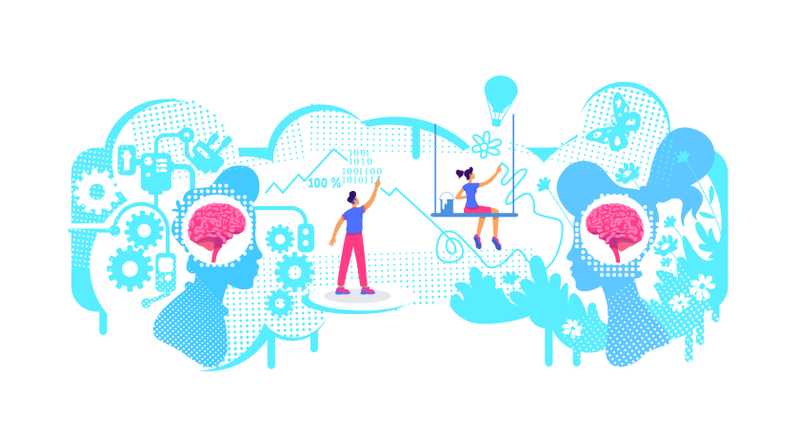Free Data Analytics Course
Jumpstart your journey with 25 essential learning units in data analytics. No cost, just knowledge.
Data analytics professionals are in high demand thanks to the growing number of organizations turning to big data to improve their decision-making. Where companies once relied on intuition or trial and error, many have in recent years discovered the value of gathering business analytics and datasets to identify market trends and understand customer behavior and motivations.
As data analysts play an increasingly important and influential role within companies, they’re also seeing more job opportunities. An IBM report found that demand for data professionals, which includes roles such as data scientists, business intelligence analysts, and operations analysts, increased by 28% in 2020 alone, and the Bureau of Labor Statistics anticipates that the profession will continue to grow by 30% over the next ten years. The average salary for data analysts has also gone up, with ZipRecruiter estimating that around 53% of senior data analysts make six figures.
The education industry has risen to meet this demand for data analysts, with online bootcamps developing detailed curricula to prepare prospective students for the workforce; massive open online courses (MOOCs) spinning up programs that offer certifications; and troves of free online resources promising to teach prospective students everything they need to know—from Python and data analysis skills to data visualization and how to approach analytics with spreadsheets—through free videos and blog posts.
With so many free and paid resources available, the process of choosing between self-taught and mentor-guided courses can raise a lot of questions and become overwhelming. Are paid courses always better? Should you start with self-learning? Is it even possible to successfully train yourself to become a data analytics professional?
Want a career in data analytics but unsure if you should enroll in a bootcamp or attempt self-learning through an online course? The following guide offers answers to some of these burning questions.
What is the difference between a data analytics course vs. a bootcamp?

Data analytics courses, which often take the form of MOOCs (massive open online courses) typically offer a hands-off approach to teaching and learning and can focus on specific elements of the discipline, such as introducing prospective students to the basics of data analytics, offering a crash course in Python or SQL, or offering a refresher on statistics and probability. These courses, offered by e-learning platforms such as Coursera, Udacity, Udemy, Codecademy, DataCamp, Khan Academy, EdX, and Simplilearn allow students to go at their own pace, often have an element of self-teaching, and many also offer certifications and can count toward college credits.
Bootcamps, on the other hand, are short-term programs that tend to offer a more hands-on and holistic learning experience. Instead of simply introducing students to the basics of a discipline or focusing on one element, many bootcamps use a range of resources such as video lectures and tutorials, readings, exercises and assignments, case studies, capstone projects, and some degree of mentorship to prepare students for everything from being able to perform the job of a data analyst to acing a job interview. An instructor is often on hand to answer questions, and mentors and counselors are available to offer professional and academic guidance. The cost of bootcamps can range from $1,000-$10,000.
Not all bootcamps are made the same, though. When choosing a bootcamp, it’s important to consider the comprehensiveness of the curriculum, the time commitment, whether you will get to work on real world projects and portfolio development, and what career guidance and counseling are included. A good bootcamp shouldn’t simply teach you the skills required to perform the job of a data analyst—it should also prepare you to land the job you want.
Get To Know Other Data Analytics Students
Joel Antolijao
Data Analyst at FanDuel
Yogita Nesargi
Data Engineer at Deloitte
Cleo Valencia
Student In The Data Analytics Bootcamp at Springboard
What’s covered in a data analytics course or bootcamp—and what should you expect?
The field of data analytics encompasses many disciplines, most of which have overlapping skills. When considering a data analytics course, it’s important to determine whether the course is generalist in nature and will teach you basic, transferable data analysis skills that you can then build upon in a later course, or if it actually covers everything you need to know to jump into a career as a data analyst.
Most courses—whether generalist or career-oriented—will typically cover skills such as statistical analysis, querying databases, data cleaning, big data analytics, and how to use tools such as Tableau and PowerBi. In addition to these technical skills, many courses also teach ways of applying analysis skills to business problems, identifying tangible business insights, creating financial analysis modules, and ways of visualizing and communicating findings to stakeholders.
The most successful bootcamps also provide opportunities for hands-on industry or project-based experience, and mentorship from industry experts to help graduates navigate both the projects they’re working on and the job market.
Who is eligible for a data analytics course or bootcamp?
Although some data analytics/data science courses require prerequisites such as existing programming skills and comfort with basic probability and statistics, many welcome complete beginners that have strong critical thinking and problem solving skills.
Make sure you carefully read a course’s expectations before signing up.
How long is a typical data analytics course or bootcamp?
The average data analytics bootcamp that prepares graduates for the workforce takes around six months, with a time commitment of around 15-20 hours a week. The process will take longer if you need to complete prerequisites such as learning programming languages.
What should I learn first in a data analytics course or bootcamp?
While many data analytics courses don’t have prerequisites, you will get the most out of a course or bootcamp if you have some experience with programming languages such as Python or SQL, and familiarity with probability, statistics, and concepts such as mean and median, and standard deviation.
Is a data analytics bootcamp worth it?
Whether a data analytics bootcamp is “worth it” depends on what it offers and what you’re willing to put into it. When choosing between bootcamps and instructor-supported online courses, it’s important to determine your end goal. Is the data analytics bootcamp a stepping stone to a more technical data science course? Is it the key to a career change? Are you hoping to land a job as a data analyst once you graduate?
The answers to these questions are important because they can help you create a checklist for the type of bootcamp best suited to you. For example, if your goal is to land a job on graduation, then you’ll want to enroll in a data analytics bootcamp that offers career guidance, prioritizes portfolio development, includes a capstone project, and gives you easy access to industry mentorship. Likewise, if you have ambitions to work on the business side of an organization, you’ll want a course that hones your communication skills and prepares you for presenting data findings to stakeholders.
The strongest bootcamps that have a high success rate when it comes to graduation and job placements typically include the following components:
- Comprehensive curriculum. Whether a student has a background loosely related to data analytics or is a seasoned coder, the best bootcamps take all their needs into account and are comprehensive, using a variety of resources ranging from videos to articles, hands-on projects, and career-related coursework to ensure that students learn the skills that employers are looking for. These courses are also clear about any pre-requisite skills required and offer prep courses for those who need additional training to get up to speed on programming languages and statistics.
- Real-world projects. Any data analytics bootcamp worth its salt will help students prepare a strong portfolio that includes a variety of projects showcasing what the student is capable of. When choosing between courses, consider whether a bootcamp requires a capstone project and whether there are opportunities to gain real world experience with machine learning algorithms and libraries.
- Accessible mentors. It’s well established that having access to a mentor with industry expertise can mean the difference between career advancement and stagnation. Mentors can offer valuable industry insights, give guidance and actionable advice on projects and career decisions, and help hold students accountable. The more personalized the mentorship, the better.
- Career coaching and networking. It’s one thing to be a highly skilled data analyst. It’s another to navigate the job market and get potential hiring managers to notice you. Look for bootcamps that incorporate career coaching and networking so that all your hard earned data analytics skills will find their way to recruiters and, ultimately, land you the job that you want.
- Job guarantee. Few bootcamps go so far as to offer graduates a job guarantee (i.e. a guarantee that you will find a job within the discipline after you complete the course, or you get your money back). But if you find one that does, it usually means they have confidence in their bootcamp and a solid track record of graduating workforce-ready students who go on to land jobs as data analysts.
Check out these data quotes by experts that may perhaps change how you think about data completely.
Since you’re here…
Interested in a career in data analytics? You will be after scanning this data analytics salary guide. When you’re serious about getting a job, look into our 40-hour Intro to Data Analytics Course for total beginners, or our mentor-led Data Analytics Bootcamp.






